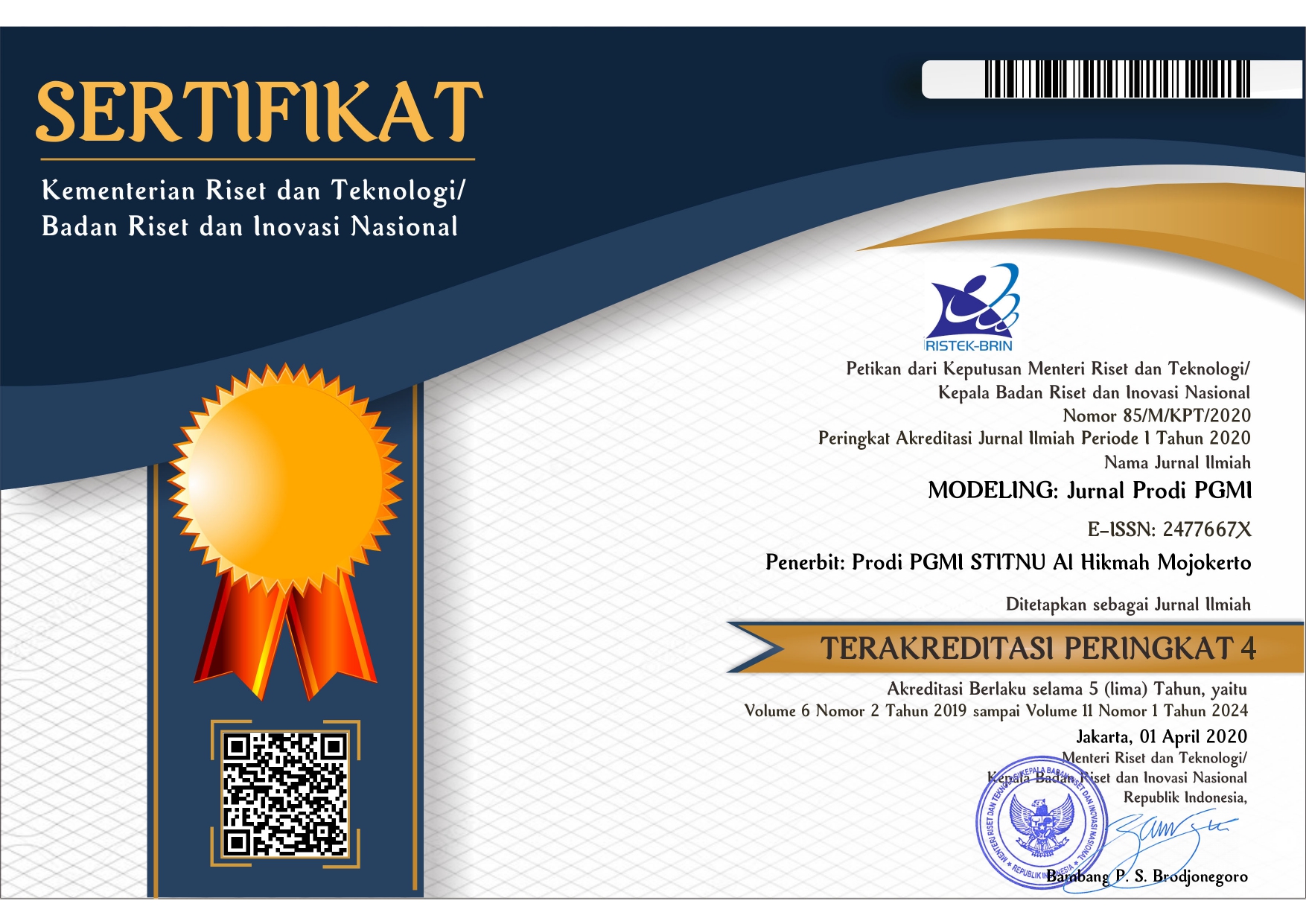Understanding Education of Authoritative Islamic Law Perspective Khaled Abou el Fadl
DOI:
https://doi.org/10.36835/modeling.v6i1.354Abstract
Problems with Gender-biased Islamic law education and authoritarianism in the United States have invited the anxiety of prominent Muslim intellectual, Khaled Abou El Fadl. In his book on the Speaking in God's Name, Khaled revealed a crucial hermeneutic problem related to the relation of text (text), author (reader). Khaled also revealed the problem of abuse of "authority" in Islamic law that surfaced and was unavoidable among individuals and groups. Evidently, there are a number of religious fatwas not speaking "about God", but acting and speaking "in the name of God". The focus of this paper further discusses what are the hermeneutical problems in Islamic law education discussed by Khaled Abou El Fadl, and what is meant by the issue of authority and abuse, the relation of text-author-reader, and authoritarianism and its implications in the study of Islamic law. Then what are the mechanisms and methods for formulating the right Islamic fatwa.
Downloads
References
_______________Studi Agama: Normativitas atau Historisitas? (Yogyakarta: Pustaka Pelajar, 1999).
Auda, Jasser. Maqasid al-Syariah as Philosophy of Islamic Law: A Systems Approach. (London: The International Institute of Islamic Thought, 2008).
Abdullah, Taufik, Ensiklopedia Tematis Dunia Islam, (Jakarta: PT Ikhtiar Baru Van Hoeve, Tahun 2002).
Bakri, Asafri Jaya, Konsep Maqashid Syari’ah menurut al- Syatibi, (Jakarta: P.T. Raja grafindo Persada, 1996).
Djamil, Fathurrahman, Filsafat Hukum Islam, (Jakarta: Logos Wacana Ilmu, 1997).
El Fadl, Khaled Abou, Speaking in God’s Name, (Oxford: Oneworld, 2001)
Esack, Farid. Qur’an Liberation & Pluralism: An Islamic Perspective of Interreligious Solidarity Against Oppression. (Oxford: Oneworld Publications, 1997).
Hidayat, Kamaruddin , Memahami Bahasa Agama: Sebuah Kajian Hermeneutik, (Jakarta: Paramadina, 1996).
Mahfud, Choirul, Politik Pendidikan Islam di Indonesia, (Yogyakarta: Pustaka Pelajar, 2016).
----------------------, The Global and Local Challenges of Islamic Education in Contemporary Indonesia, Scientific Journal of PPI-UKM 3 (2), 50-54
Rahmawati, K Yahiji, C Mahfud, J Alfin, M Koiri, Chinese ways of being good Muslim: from the Cheng Hoo Mosque to Islamic education and media literacy, Indonesian Journal of Islam and Muslim Societies 8 (2), 225-252.
Rusli, Nasrun, Konsep Ijtihad Al Syaukani: Relevansinya bagi Pembaruan Hukum Islam di Indonesia, (Jakarta: Logos, 1999).
Safi, Omit. Progressive Muslims: On Justice, Gender, and Pluralism. (Oxford: Oneworld Publications, 2003).
Supriyanto, Didik. MODELING: Jurnal Program Studi PGMI 2, No. 2 (September 3, 2015): 66-75.
--------------------. MODELING: Jurnal Program Studi PGMI 5, no. 1 (September 26, 2018): 112-129.
Qattan, Manna’ Khalil, Studi Ilmu-Ilmu Qur’an, (Bogor: Pustaka Litera antar Nusa, 2001).










